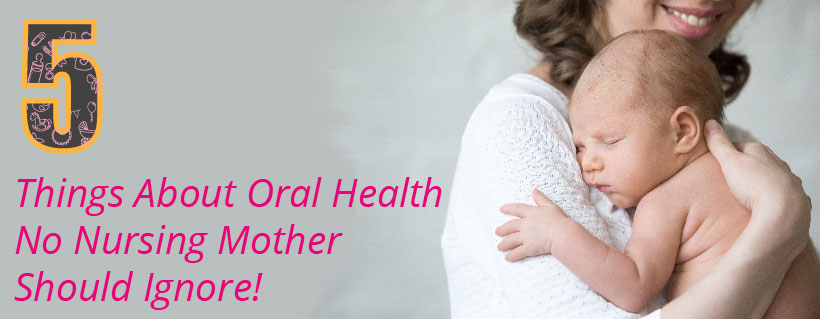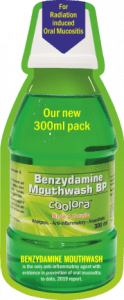Menu

Date: 21st. Sept. 2017
Every mother wants her child to grow healthy and strong. And the first step towards that goal starts with breastfeeding. It is likely that oral health will be the last thing on your mind when you’ve just welcomed your new bundle of joy into your family. But, if you want all your baby’s pictures to sport shiny pearly whites, you need to give oral care a thought.
Like adults, even babies are prone to dental problems. Many parents believe that baby teeth will eventually fall off, and hence don’t need as much attention as permanent teeth. However, that’s not true as even breast milk can cause caries! As a matter of fact, dental care should begin even before your baby’s teeth start erupting.
To help you take care of your child’s and your own oral health, here are 5 things you should keep in mind:
Research suggests that dental caries is more common among infants who are fed through a bottle. This is caused due to continued exposure to milk, juice, or other liquids that contain sugar. This form of caries is known as baby bottle tooth decay.
If your baby uses the bottle for extended periods, it can cause severe caries and even cause problems when permanent teeth begin to erupt. While feeding your child from a bottle can be more convenient and practical, especially for working mothers, breastfeeding significantly reduces the risk of caries.
During breastfeeding, milk is squirted to the back of the mouth, reducing the contact between the milk and teeth. In the case of an artificial nipple, the milk passes over the teeth before its swallowed. This worsens when the baby sleeps with a bottle in the mouth, allowing the teeth to soak in sugary substances (even breast milk has sugar) through the night.
To avoid caries, wipe your baby’s gums with a clean, dampened piece of gauze wrapped around your finger. Once the teeth start erupting, brush them twice a day with a toothbrush and a tiny smear of toothpaste. This will even get your child used to you brushing his or her teeth and promote healthy oral hygiene habits.
According to a study by Pediatrics, babies who were exclusively breastfed for 6 months were 72% less likely to have crooked teeth. Furthermore, the risk of developing open, cross, and over bites also reduces in breastfed babies.
However, other factors like genetics, thumb-sucking, pacifier use, etc. can also affect the teeth’s alignment. So, don’t think that simply by breastfeeding your child, he or she will have the perfect teeth. Make sure that your dentist or a pedodontist can examine the tooth eruption so that you can take preemptive action should any complication arise.
Almost all medications that can enter your bloodstream will enter the breast milk. But, the concentration of the drug is low for most medicines, making breast milk safe for your little one. However, the concentration of some medicines can increase over time and be harmful to your baby. Since kidneys in infants are not developed enough, they cannot metabolize the medications. Hence, causing complications.
So, before taking any medication, consult your physician about its implications. He or she will prescribe an alternative that won’t be harmful, or in rare cases, ask you to temporarily stop breastfeeding. This risk significantly reduces once your baby is over 6 months old.
Breastfeeding not only provides your baby with vital nutrients but is also good for your health. A breastfeeding mom can lose 300-500 calories in a day, which is great for losing the extra pounds faster. Moreover, your body releases the hormone, oxytocin, which helps you bond with the baby and reduces the risk of ovarian and breast cancer.
With a new baby in the house, it is natural for moms to be occupied. And while caring for the baby, many mothers tend to neglect their own selves and oral hygiene. Many simply brush in a hurry or worse still, don’t brush at all.
Lack of oral hygiene increases the risk of caries and gum disease. With poor oral health, mothers can transmit mouth bacteria to their baby. Even a simple act of sharing your spoon or kissing can introduce bacteria in your baby’s mouth. This makes it vital to take care of your own health while caring for your child.
Make sure that you regularly brush twice, floss once, and rinse as often as needed to keep your mouth healthy and cavity-free. With these things in mind, you will be able to take care of yours and your baby’s oral health better.
References:


| PRODUCTS | QTY | PRICE | VALUE in INR |
|---|
| PRODUCTS | QTY | PRICE | VALUE in INR |
|---|